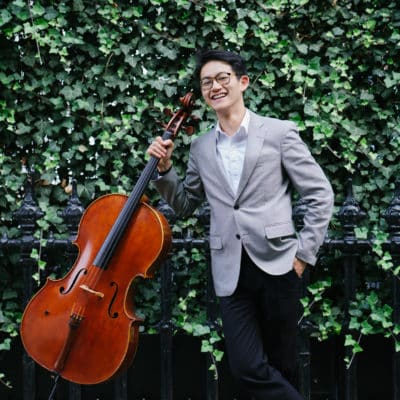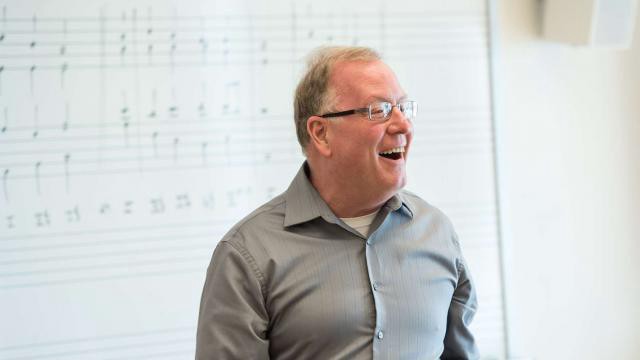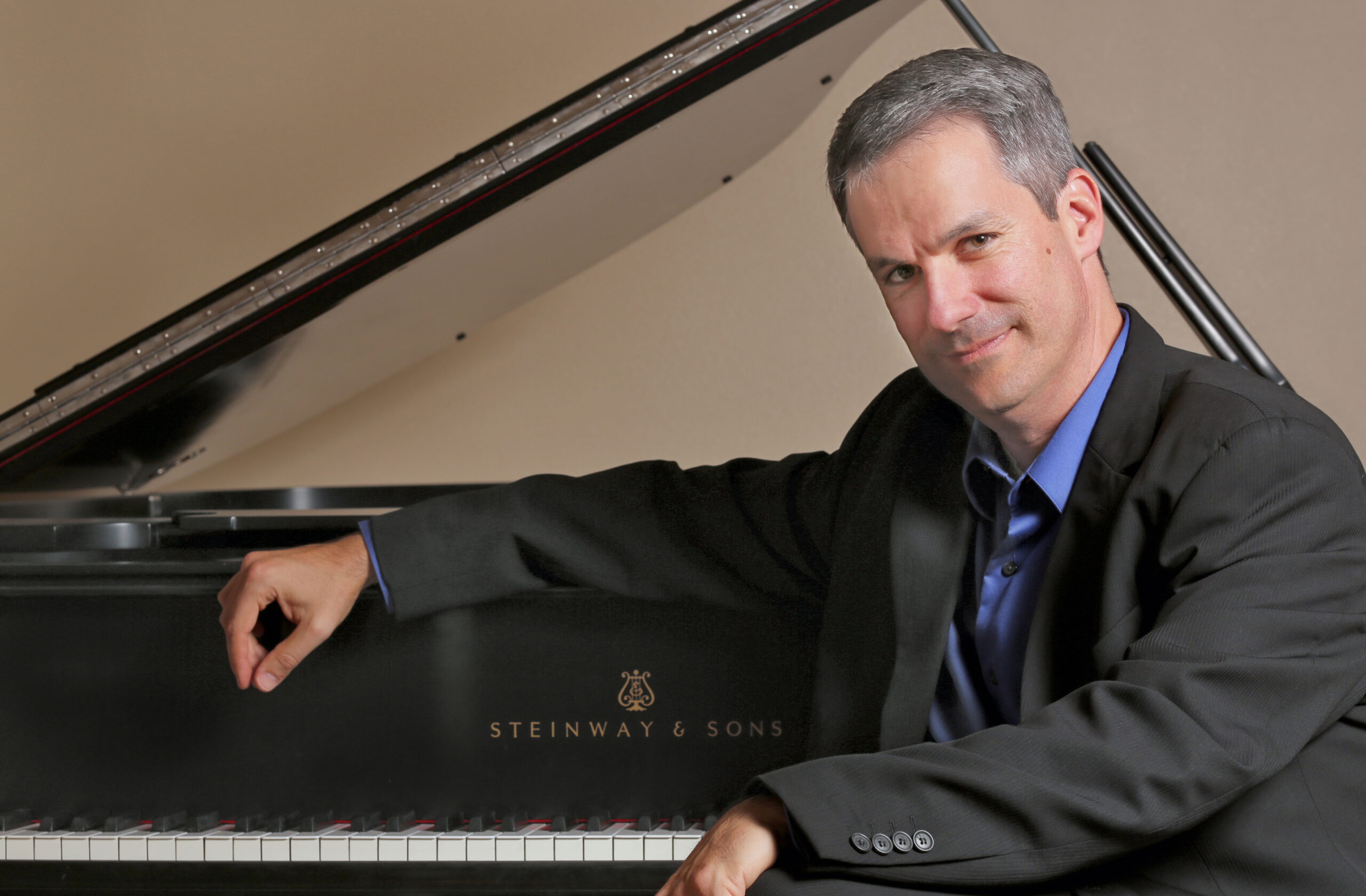
Robert Thies shot to fame in 1995 when he became the first American in four decades—since Van Cliburn’s Cold War win in 1958—to win a Russian piano competition, but things didn’t quite work out as planned… Robert talks with us ending up at zero after his feted win, diving into Clara Schumann’s diaries, and looking forward to performing Clara Schumann’s piano concerto at 2023/24 season finale concert BRAHMS OBSESSIONS.
First things first, how is your name pronounced? 🙂
I know people can be intimidated by this. It is pronounced like “Theece”—rhymes with peace.
Tell us a little about yourself.
I grew up mostly in the Los Angeles area. I went to USC for a Bachelor’s and Master’s degree, and I stayed in Los Angeles following graduation. Now I live in a suburb called Santa Clarita. My father was an amateur jazz musician, and enjoyed playing in big bands throughout his life. But classical music was largely a self discovery for me, with the guidance of some excellent teachers of course.
How do you and Donato know each other?
Donato was a guest conductor with the New West Symphony some years ago and I played an featured piano part to a piece by John Adams. We bumped into each other a couple times after that, and he was kind enough to take an interest in my solo career.
A pianist of unerring warm-toned refinement, revealing judicious glimmers of power.”
– Los Angeles Times
Tell us about winning the Gold Medal at the 2nd International Prokofiev competition in St. Petersburg, Russia in 1995.
Well, unsurprisingly this event became one of the most important and treasured experiences of my early career. The competition occurred in December 1995, so the Neva River in St. Petersburg was iced over. It was cold, dark, and stark economically as it was a few years after the fall of the Soviet Union. Food was scarce, and I lost 8 lbs in those 12 days I was there.
I performed 3.5 hours of the most demanding repertoire I had yet learned, including pieces like Prokofiev’s 2nd Piano Concerto, Sixth Sonata, Ravel’s Gaspard de la Nuit, and Stravinsky’s Trois mouvements de Petrouchka. Most of my competitors were Russian or from former Soviet Republics (ie: Ukraine, Georgia, etc.) When it was time to go home, I was pulled into a private hotel room to be paid the grand prize in cash. They gave me only 80% of the posted 1st prize money, the rest being for Russian “taxes”. Any return concerts and recordings promised to me were rescinded as Russia didn’t even have enough money to post my airfare. Another irony: because I thought I was going to spend a year studying in Vienna prior, my parents sold my car to my roommate for $500, so I was without a car in Los Angeles. I used all of my prize money to purchase a used car, and so financially I was back to “zero”.
Winning this competition did not launch an international career the way it did for Van Cliburn in 1958, as there was no Cold War happening. While I garnered some interest locally, the experience taught me that winning an international competition no longer jumpstarts a career.
You’ve studied Clara Schumann’s diaries. Are there any interesting or surprising stories you can share?
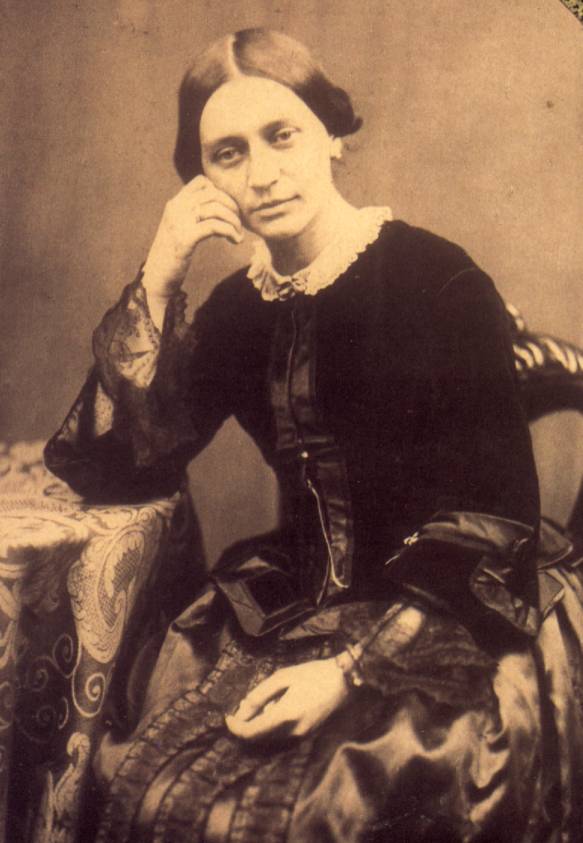
Reading her diaries and letters (primarily to Brahms) was so illuminating, and by the time I finished the diaries a few years later, I got emotional because I felt that I had lived her life with her. It was comforting to connect with her musically. I laughed at the way she expressed such a distaste for some of her contemporaries like Liszt and Wagner, and I was warmed by her devotion and love for others, like Mendelssohn, and Brahms, and most of all her lifetime commitment to the music of her late husband. She was often self-deprecating, particularly as a composer, but she also had insecurities about her own performance career, specifically the toll that her life as a touring concert pianist took on her health. It only takes a moment to remember that during her lifetime, she was traveling mostly by stagecoach, and when she stayed somewhere, there was no central heating.
I was often surprised by the candor she used speaking to Brahms about his works. She wouldn’t hesitate to be critical at times, telling Brahms he could do “better” with this theme or that. On the other side of the coin, it was beautiful to hear her cite specific pieces of Brahms’ or her husband’s oeuvre that she particularly loved. Reading her own views and the way she resonated with those contemporary works that we still celebrate today was so gratifying. I felt the 150-200 year time span between her life and my own disintegrate, and it was amazing to see how so many of these wonderful pieces that she adored survived the span of time.
What can we expect to hear in this piece – it was written by a 15-year old. Does it show?
This is an extraordinary work of someone even twice her age. Her understanding of harmony, counterpoint, musical form and structure is already impressive. Clearly her father was an incredible teacher and mentor to her. And the pianistic demands in the work (of which there are many!) are evidence that she was a highly accomplished, and even daunting pianist already.
There are beautiful moments in the work hinting at an old soul, and honestly I hear more influences of Chopin and even Liszt than I do Beethoven or Robert Schumann. Because she was so young when she wrote the piece, it is unfair to compare this piece to other contemporary works like Chopin’s two beautiful concerti written a few years prior. Because she had a very sheltered childhood under her father’s strict eye, she hadn’t yet experienced some of life’s pains like the broken heart of a first love. So this piece is in no way melancholic, but instead has the vitality of a spirited and fiercely talented young lady who would become of the most esteemed musicians of the 19th century.
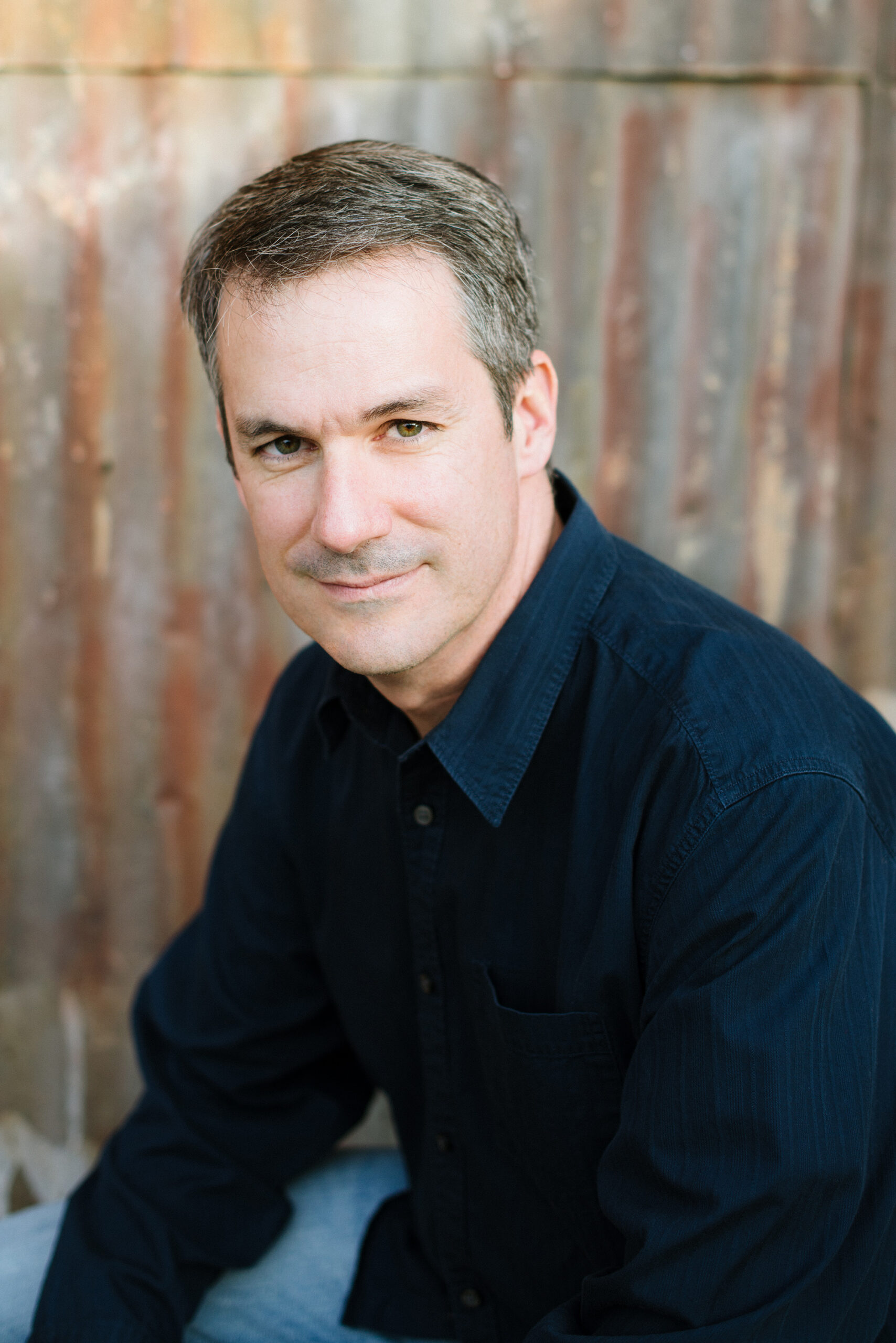
You currently live in L.A. Have you worked on any film scores we might know?
Yes, last year I played the celesta solos in John Williams’ intimate score to Spielberg’s autobiographical film The Fabelmans. I also played on the last Indiana Jones film. Other film scores that I recorded that featured piano include the Anthony Hopkins 2007 film Fracture, the Will Smith 2015 film Concussion, and the 2018 film: Fifty Shades Freed.
Do you have a message for our patrons?
I can’t wait to play with Donato and the California Symphony and share this rarely performed work of Clara Wieck (Schumann)!
Robert Thies performs Clara Schumann’s Piano Concerto at BRAHMS OBSESSIONS, Saturday, May 4 at 7:30 PM and Sunday, May 5 at 4 PM at the Lesher Center for the Arts in Walnut Creek. Tickets are $45 to $90 and $20 for students 25 and under, and include a free 30-minute pre-concert talk starting one hour before the performance. Buy tickets online or call or visit the Lesher Center Ticket Office at 925.943.7469, Wed – Sun, 12:00 noon to 6:00 p.m.

